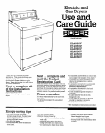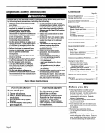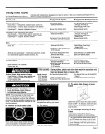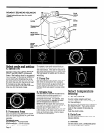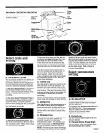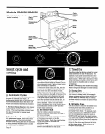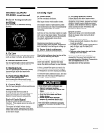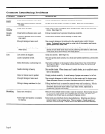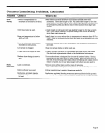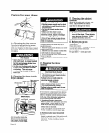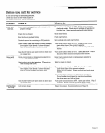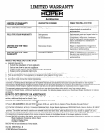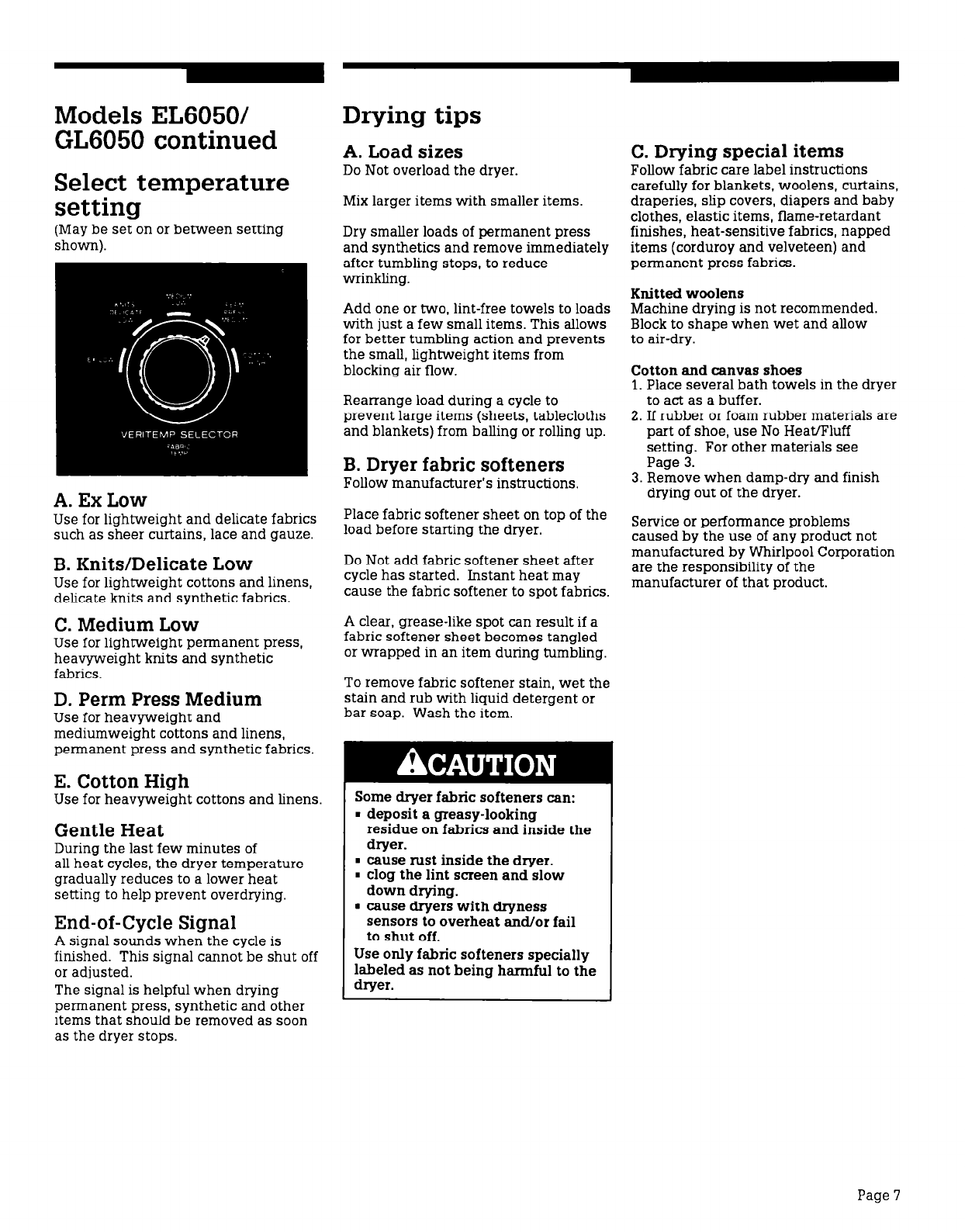
Models EL6050/
GL6050 continued
Select temperature
setting
(May be set on or between setting
shown).
A. Ex Low
Use for lightweight and delicate fabrics
such as sheer curtains, lace and gauze.
B. Knits/Delicate Low
Use for lightweight cottons and linens,
delicate knits and synthetic fabrics.
C. Medium Low
Use for lightweight permanent press,
heavyweight knits and synthetic
fabrics.
D. Perm Press Medium
Use for heavyweight and
mediumweight cottons and linens,
permanent press and synthetic fabrics.
E. Cotton High
Use for heavyweight cottons and linens.
Gentle Heat
During the last few minutes of
all heat cycles, the dryer temperature
gradually reduces to a lower heat
setting to help prevent overdrying.
End-of-Cycle Signal
A signal sounds when the cycle is
finished. This signal cannot be shut off
or adjusted.
The signal is helpful when drying
permanent press, synthetic and other
items that should be removed as soon
as the dryer stops.
Drying tips
A. Load sizes
Do Not overload the dryer.
Mix larger items with smaller items.
Dry smaller loads of permanent press
and synthetics and remove immediately
after tumbling stops, to reduce
wrinkling.
Add one or two, lint-free towels to loads
with just a few small items. This allows
for better tumbling action and prevents
the small, lightweight items from
blocking air flow.
Rearrange load during a cycle to
prevent large items (sheets, tablecloths
and blankets) from balling or rolling up.
B. Dryer fabric softeners
Follow manufacturer’s instructions.
Place fabric softener sheet on top of the
load before starting the dryer.
Do Not add fabric softener sheet after
cycle has started. Instant heat may
cause the fabric softener to spot fabrics.
A clear, grease-like spot can result if a
fabric softener sheet becomes tangled
or wrapped in an item during tumbling.
To remove fabric softener stain, wet the
stain and rub with liquid detergent or
bar soap. Wash the item.
Some dryer fabric softeners can:
n deposit a greasy-looking
residue on fabrics and inside the
dryer.
n cause rust inside the dryer.
1 clog the lint screen and slow
down drying.
n cause dryers with dryness
sensors to overheat and/or fail
to shut off.
Use only fabric softeners specially
labeled as not being harmful to the
dryer.
C. Drying special items
Follow fabric care label instructions
carefully for blankets, woolens, curtains,
draperies, slip covers, diapers and baby
clothes, elastic items, flame-retardant
finishes, heat-sensitive fabrics, napped
items (corduroy and velveteen) and
permanent press fabrics.
Knitted
woolens
Machine drying is not recommended.
Block to shape when wet and allow
to air-dry.
Cotton and canvas shoes
1. Place several bath towels in the dryer
to act as a buffer.
2. If rubber or foam rubber materials are
part of shoe, use No Heat/Fluff
setting. For other materials see
Page 3.
3. Remove when damp-dry and finish
drying out of the dryer.
Service or performance problems
caused by the use of any product not
manufactured by Whirlpool Corporation
are the responsibility of the
manufacturer of that product.
Page 7



